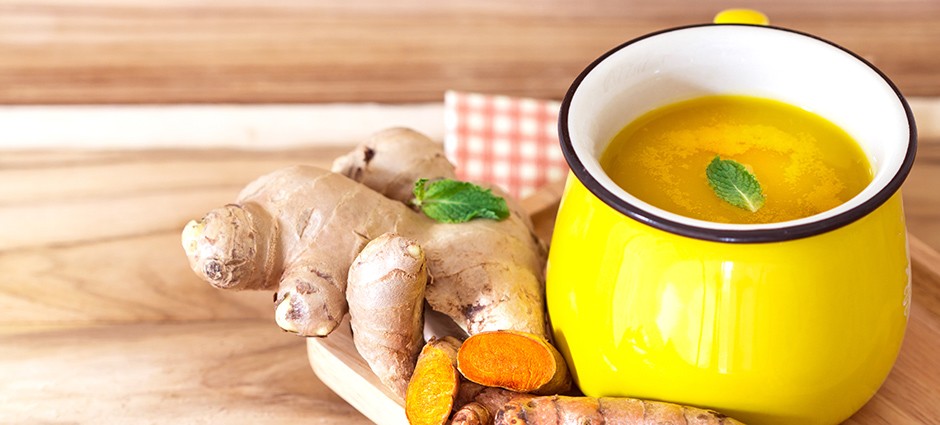From allergies and gastrointestinal distress to autoimmune diseases and joint disorders like arthritis, conditions that lead to chronic inflammation can be anywhere from uncomfortable to disabling. Although many people reach for over-the-counter pain relievers, there are a multitude of natural inflammation-battling alternatives that provide both safe and effective relief. Here are six natural remedies that may leave you feeling healthier and pain-free.
White Willow Bark
This natural supplement, which hails from the bark of the white willow tree (Salix alba), has been used for centuries to treat pain and inflammation. White willow bark contains salicin, a compound similar to aspirin that gives the bark its anti-inflammatory properties.
A 2001 study published in Phytotherapy Research found that subjects who were given white willow bark reported a 14 percent decrease in pain symptoms from their baseline, whereas subjects who took a placebo reported a 2 percent increase in their pain.
A typical dose of white willow bark is 240 milligrams per day. People who are allergic to aspirin should not use this supplement. Those with diabetes or liver problems, who may be more sensitive to aspirin, are also advised to use it with caution or as a physician directs.
Green Tea Extract
The antioxidants in green tea are known for their ability to improve heart health and are even believed to help prevent some types of cancer.
Catechins are another plant-based compound found in green tea that have been shown to reduce inflammation symptoms.
A 2010 article published in Life Sciences found that EGCG, the main catechin in green tea, may reduce joint inflammation and disease progression in patients with rheumatoid arthritis and osteoarthritis.
Green tea extract is available in capsule form; a typical daily dose is between 300–400 milligrams.
Boswellia Serrata Extract
Native to India, trees from the Boswellia species produce a resin called olibanum (better known as frankincense) that contains powerful anti-inflammatory and analgesic properties. Boswellia is often used to treat degenerative and inflammatory joint disorders, such as arthritis.
A 2003 study found that subjects with osteoarthritis of the knee who were treated with boswellia serrata extract for eight weeks reported a decrease in knee pain and had improved flexion and walking distance.
Experts recommend supplementing with 500 milligrams per day of boswellia extract, standardized to 30 percent boswellic acid.
Ginger
Ginger has been used in Ayurvedic and Chinese medicine for years to treat a variety of ailments, from breathing difficulties to diabetes. In the United States, it’s common to reach for ginger to soothe nausea symptoms.
Food-based supplements like ginger continue to be studied for their potential health benefits, including relieving pain and inflammation. In fact, a 2010 study published in The Journal of Pain found that supplementing with ginger reduced exercise-related muscle soreness.
Another study, involving subjects with osteoarthritis, found that when ginger was applied topically at the pain site, pain symptoms decreased, leading subjects to report an improved quality of life.
There is currently no recommended daily dose of ginger, but it has been generally recognized as safe by the U.S. Food and Drug Administration. Ginger can be enjoyed fresh, as a soothing tea or in capsule form.
Curcumin
Curcumin is derived from turmeric, a flowering plant of the ginger family. It’s traditionally used in Ayurvedic and Chinese medicines as an anti-inflammatory agent.
Several clinical studies have shown curcumin’s abilities as both a powerful antioxidant and anti-inflammatory ingredient. Evidence from studies suggests that curcumin works similarly to over-the-counter pain relievers such as ibuprofen and even prescription medications known as cyclooxygenase-2 (or COX-2) inhibitors.
A 2012 study assessing the efficacy and safety of curcumin in subjects with rheumatoid arthritis found that subjects who took curcumin alone reported fewer disease symptoms than subjects who took a prescription pain medication or a combination of curcumin and a prescription pain reliever.
There is no single recommended dose of curcumin, but subjects in the above study took 500 milligrams twice daily. Talk to your doctor about a dose that’s right for you.
Hint: When shopping for a curcumin supplement, look for a supplement that also contains piperine (from black pepper), which is said to increase curcumin’s bioavailability by up to 2,000 percent.
Probiotics
According to the U.S. Centers for Disease Control and Prevention, more than 3 million Americans are estimated to have inflammatory bowel disease (IBD), which is characterized by chronic inflammation of the gastrointestinal tract.
A mix of genetics and lifestyle factors contribute to IBD. In addition to eating a clean diet, boosting the microbiome and immune system by taking a high-quality probiotic can help control IBD symptoms.
According to a 2013 study, Lactobacillus and Bifidobacterium (found in most probiotics), have been found to reduce gut inflammation.
Look for a multistrain formula, and remember to take it daily for best results.

